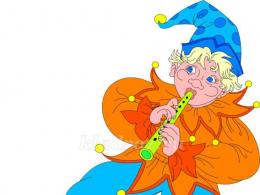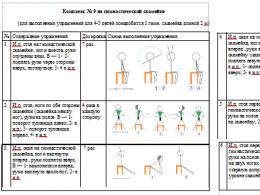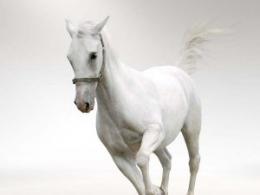Bayern Munich footballers. Bayern squad and coaches
Football is a great game. A sport that unites millions of people around the world. There are a lot of clubs. And one of the most popular and titled is Bayern Munich. A legendary club with a rich history and a lot of achievements. Of particular interest are the coaches of Bayern. There were many. And everyone brought something different to this club. Therefore, it is worth paying more attention to these professionals.
Start
Thomas Taylor was the first real coach. He led the team for a year - from 1908 to 1909. He was then replaced by Georg Hor. He stayed for a longer period - for two seasons. After him, also for 2 years, came John Griffith. He managed Bayern until 1913, when William Townley joined him. And exactly one year the team was trained by two people.
Then came Franz Kreisel, followed by his namesake Baumann. In those days, the coaches of Bayern (as, in principle, of any other club) changed often, almost every season. Following Baumann was Heinz Kistner, he was replaced by Karl Storch. In the 1920s, football players were coached by William Townley, Dori Kurshner, Hans Schmid, Jim McPherson and Kondrad Weiss.
For all the times of those years, Kondrad Weiss and Richard Dombey stayed the longest. Each of them led the team for three years. Over the entire history of the club, several dozen coaches have changed (not 10, not 20 and not 30 - much more). But there is not much information left about them. Therefore, it is necessary to tell in more detail about those who held the post of head of the club relatively recently.
People who contributed to the success of the team
Many Bayern coaches are legendary people. And their work could not but affect the reputation of the club. Since the 70s, those times begin when only true professionals come to the post of head coach. Udo Lattek is one of them. He managed the club from 1970 to 1975 and then from 1983 to 1987. Greatest personality! Multiple champion of Germany. Few people know, but football was originally a hobby for him. Udo played at an amateur level and was preparing to become a teacher.
Then there was Dettmar Kramer. It was he who led the team to victories in the European Cup (1975 and 1976). Then there was Gyula Lorant and Pal Chernai. The latter also did a lot for the team. Twice led her to victory in the championship of Germany and once in the German Cup. There was and That's just it will need to be told separately. The legendary was also the coach of FC Bayern. He led him to victory in the UEFA Cup.
And finally, this man led FC Bayern to victory in the German Championship, the German League Cup and the German Cup.

Joseph Heynckes
This man has done a lot for a club like Bayern. The former coach of the Munich team is a legendary figure. He is a four-time champion of Germany, as well as the owner of the UEFA Cup and Germany. And that's as a player! He is also the world and European champion (as part of the German national team).
He has coached five German clubs. Borussia Monchenglabach, Eintracht from Frankfurt, Schalke from Gelsenkirchen and Bayer. He also led the Spanish teams (Athletic, Tenerife and Real Madrid). There was also a Portuguese club - Benfica. As a coach, he brought Bayern to victory in the German championship and in the Cup of the country. But the most significant trophy is, of course, the Champions League Cup. And it was with him that the club scored a “golden hat-trick” - three victories in major tournaments per season.
And of course, it should be noted that Jupp Heynckes is one of 18 coaches who won the Champions League twice. And one of the four (!) who managed to do it with two different teams.

Louis Van Gaal
The Dutch coach came to the Munich club when they were having a hard time. The start of the season was tough. The first place in the standings was for Bayer (which at that time was led by Heynckes). But Van Gaal did everything in his power. In winter, the team began to show great success. Soon, the Munich team even outperformed Bayer!
In the 2009/10 season, under the leadership of Louis Van Gaal, they reached the Champions League final. But there they lost to the Italian “Inter”. The next season was not so successful, because Van Gaal was fired. Nevertheless, the former head coach of Bayern has done a lot for the club and its players.

Ottmar Hitzfeld
This man took over as Bayern coach in 1998. Before that, he was in Borussia - with competitors. By the way, they considered the Munich club “untrained”. And yes, there was reason to say so. The previous coaches of Bayern stayed in the team for a short time. However, Hitzfeld managed to rally the players. He decided to bet on offensive football. And I didn't guess. Already in the following year, 1999, the club won the national title. And in the next two seasons, success was repeated. Twice (in 1999 and 2000) the Bavarians played in the German Cup finals. Each time they faced Werder Bremen. For the first time, Munich lost. But in the second they did not miss their victory.
With the Champions League, everything was more dramatic. The entire football world will forever remember the 1999 Champions League final. Then the Munich team in the last added 5 minutes lost to Manchester United. They led 1-0! But the British did the unbelievable - in the last minute and a half they scored 2 goals. But in 2001, Bayern won the Champions League - then their rival was Valencia. It was a success.
But Hitzfeld left the team in 2004. The management decided to terminate the contract with the coach ahead of schedule. And no specific reason was given. There were guesses that this was due to a not entirely successful performance in the German championship.

Nowadays
All Bayern coaches have something special. For example, Josep Guardiola came after Heynckes. The first Spanish coach to lead a Munich club. But this season they say goodbye to him. This has been known for a long time. But who will become the coach of Bayern was an intrigue. But then they announced the name, and it was a shock to everyone. From July this year, 2016, the Munich team will be led by the Legendary Italian coach! The man who won with Milan everything that was possible. The one who led Real Madrid, Chelsea, Paris Saint-Germain, Juventus and Roma to numerous victories. Fans are in anticipation. Many are sure that, led by Ancelotti, Bayern will achieve a lot.
After all, there is someone to lead to victory! Now Bayern have a very strong squad. And they need a professional, star coach who knows what it's like to work with such teams. Real football stars play in Bayern. Now the main line-up is as follows: Philipp Lahm, Manuel Neuer, Arjen Robben, Franck Ribery, Dante, Rafinha, Jerome Boateng, Juan Bernath, Holger Badstuber, Thiago Alcantara, Mehdi Benatia, Sebastian Rode, Douglas Costa, David Alaba, Arturo Vidal, Sven Ulreich , Javi Martinez, Robert Lewandowski, Serdar Tasci, Philipp Steinhart, Joshua Kimmich, Julian Green, Kingsley Coman, Fabian Benko, Milos Pantovic, Patrick Wairauch. Needless to say, the team for a large part consists of current world champions! Because she needs a worthy leader.
It is assumed that the Italian specialist will stay in the team for three years. Well, it remains to wait for the summer and see what Ancelotti will do with the players. After all, everyone knows that every time he does something phenomenal. Usually it ends with victories.
Oddly enough, the news of the appointment Niko Kovac the head coach of Bayern Munich caused so much bewilderment. Rather, on the one hand, this bewilderment is understandable. People are used to thinking in stereotypes (it's not good or bad - it's just the way it is), and the stereotype that has developed in football says that only a coach who has earned himself a big name can lead a big club. Any other choice is taken with surprise: that is, how is it Kovacs? Who is this anyway?
Meanwhile, the cost of a name in football is a) a very ephemeral thing; b) definitely not the main and not the only selection criterion. And if you pay attention to other criteria, it becomes clear that Bayern approached the solution of the coaching issue quite reasonably.
The simplest part of the justification puzzle is the experience of working at Bayern. The Söbener Strasse club is to a certain extent a thing in itself: people from outside very rarely become part of this system. There is a joke in Munich that the inclusion of a player's portrait in the club's hall of fame automatically guarantees him a place on the board of directors, and this is only partly a joke. Kovacs has not played for Munich all his career, but he is familiar with how the club processes are arranged - this was certainly a factor for him.
But not the most important. The fact is that at Eintracht, the Croat went through a difficult training course for work at Bayern. In Frankfurt, which was very limited in terms of funds, it was necessary to scrape together a team from all over the world - as a result, a frantic mix of representatives of a dozen and a half nations gathered in the team. Eintracht spoke seven or eight different languages, was the most international club in Europe, but Kovacs, who had excellent communication skills, managed to build a team in these ungrateful conditions. A team where everyone fights for everyone.
And here's why it's important. Bayern have never chosen a coach based on his tactical skills - which is why there is no Tuchel or Hasenhüttl in Munich. Bayern is a specific place to work also because it is much more important to show people management skills here. As soon as control is slightly lost, the coach will be instantly gnawed by the players, which happened to Carlo Anchelotti, in the tactical strength of which there is no doubt. The main job of a coach in Munich is not to make players better (the best are always gathered here anyway), but to make each of them remember daily how good they are and extinguish conflicts even before they appear. It’s embarrassing to deal with links to oneself, but if you haven’t read my article about what kind of person, read it. Around the middle, you will realize that this is exactly who Bayern needs in terms of man-management.
The organizational component is also important. Now it is finally clear that it is under Kovacs that the global restructuring of the Bayern attack will take place - the refusal to bet on a pair of Robbery and the search for new options. In such a situation, when the same people commanded the attack for many years, Munich runs the risk of having problems in the offensive (they are partially there now, which he admitted Jupp Heynckes). Accordingly, it is necessary to start building a new team from the defense, where everything is in order with the record master both in terms of names and in terms of quantity and age composition. Kovacs, on the other hand, specializes precisely in building distinct defensive actions - if they succeed in installing them, the Munich machine will not succumb to external damage.
These three points are already enough to explain how strange, at first glance, the choice becomes reasonable. There is, however, a non-obvious thing that is worth mentioning. worked in the Salzburg Red Bull and after several years of strengthening the club in Europe, he applied for the position of head coach of the main team. Nevertheless, the sports director of RBZ and one of the main football thinkers of our time Ralph Rangnick said that Kovac did not suit the club in philosophy, which extremely offended the Croat. Now, when almost half of the coaches in the Bundesliga either came into direct contact with Rangnick, or adopted some of his ideas from his followers, and Rangnick’s Leipzig project is slowly becoming Munich’s main competitor, it will be very Munich to oppose this philosophy. Again, the theory is not obvious, but very beautiful.
In a club where a proud love of one's own identity and difference from everyone else is taken to the level of the motto ("Mia san mia" - "We are us"), this is quite acceptable. And the new head coach knows this.
Perhaps there is no person who has not heard of the football club from Munich - Bavaria, which is of German origin and has the largest number of members in the history of sports organizations around the world.
The first match of this, at that time still unknown, club was held on April 4th. Munich became the opponent. The team of Bavarians - students won the opponents with a score of 7:1 in their favor. However, in the first international match they lost with a score of 0:8. Then, the club's management did not give up and increased club fees. If they used to be only 3 marks, then after the increase it became 40 marks. This had a beneficial effect on budgetary funds and a few years later the first legionnaire from Holland, Willem Hesselinka, was invited to the club. In addition to games, he was also engaged in training.
The football team achieved its first significant successes only two decades after its foundation. Success brought them the Southern Regional League. Then in 1925, she was quite a bit - almost enough to take the title of national champion. A couple of years later, Bayern took the championship in the South, but lost in a nationwide match to Hamburg. Then it included striker Pottinger, who later on will be involved more than once under the flags of the German national teams.
The real triumph for the team was brought in 1932. Then, with winning goals 2:0, she beat Eintracht in the final championship. In that match, the famous Bavarians were Goldbrauner and Harringer, who were famous for the best defenders in Europe.
The football club began to flourish only in the 60s of the twentieth century. In 1963, Wilhelm Neudecker became the president of Bavaria, who invited coach Zlatko Tchaikovsky. This cooperation was marked by due results. A decent football team was already resurgent in Munich. Then, it consisted of Mayer, Müller and Beckenbauer. An attempt to play in the Bundesliga was a success. Having won the matches of the transitional tournament, Bayern wins the country's main Cup. A year later, in 1967, at the 70,000th stadium, the team easily beat the Rangers. That winning goal on May 31, a couple of minutes before the end of the game, was scored by Franz Roth, who will play for another 11 years in his favorite football club.
In 1969, the team held a short championship in the German Cup, which they lost as a result of the first game with Saint-Etienne.
This football club gained real fame only with the advent of Udo Lattek. It was he who was able to assemble the golden team, which glorified the club throughout Europe. The core of the line-up was Paul Breitner, Uli Hennes, Müller, Mayer, Beckenbauer and Schwanzenbeck. It was these players who brought Bayern to a new level.

The turning point for Bayern is 1974, when the match with Atlético (Madrid) took place. That game was remembered by everyone, and forever went down in history. Regular time did not bring points to any team. In extra time, the Spaniards score a goal against the Bavarians and the fans aloud count the time until the end of the game. When the number 7 sounded, Schwarzbeck makes a long-range strike and a new countdown begins. The match was replayed the next day, and Atlético was completely defeated with a score of 4:0. This year brought the Bayern football club the title and the World Cup. The players won everything they could without any problems, all the cups went to the club's museum. The stars of Bavaria - Müller and Breitner, after a series of dizzying victories, have lost the incentive to further development. After a short time they left the club. Other stars of the Bavarians lost their discipline, and absolutely did not pay attention to the instructions of the coach. As a result - uncontrollability and tenth in the German championship.
After another change of coach, this time it was Detmar Kramer, nicknamed "the mighty mouse", the team failed to take the championship, but it twice climbed the European podium. In those years, Bavaria never managed to get the fourth cup.
Until the beginning of the 21st century, the Bayern football club was not distinguished by special achievements after the dizzying victories in the 70s. The team's match against "" was especially dramatic, when the Bavarians had a victory almost in their pocket, but in a matter of minutes the opponents scored two winning goals.
The evolution of the emblems of the football club Bayern

Bayern began to rise in 2000. Victories in the German championships have become regular; over the past fifteen years, the football team has won three national cups and won the Champions League (2001).
18 MayFC Bayern
In this article you will learn:
FC Bayern is the most popular and most titled football club in Germany. Its foundation falls on the 1900th year. The list of trophies won by the Munich team is really impressive. Bayern is a sixteen-time winner of the German Cup, the team has won the championship twenty-three times. Munich managed to win the European Cup three times, win the Champions League twice.
Club emblem
Nicknames:"rothoze" ("red pants"), FC "Hollywood", Bavarians, Star of the South.
Address: Germany, Saebenerstrasse 51, DE–81547, Munchen
Stadium: Allianz Arena. Capacity - 69,901 spectators. Field size: length - 105, width - 69 (in meters).
Official website of the club: www.fcbayern.de
The history of the club
At the end of the 19th century, football in Germany developed at the expense of gymnastic clubs, which were popular at that time. One such club was 1860 Munich. In 1899, a football section was founded in this club. Since little attention was paid to football in the gymnastic club, already in 1900 a section meeting was held, where the question of the possibility of independent development of the football section was discussed. Eleven people were in favor of breaking away from the gymnastics club and creating a new football club. This is how the Bayern football club was born. The club was named after .
Bayern held its first match with the First Munich team. The result of the match is 5:2 in favor of Bayern. Due to the fact that the club was based near the University of Munich, it became very popular among students. The doors of the new club were open to everyone, so the team did not experience a shortage of players. Not surprisingly, in 1907 the club had a dozen children's and youth teams, as well as several adult teams. Until the First World War, this team was the most popular in Munich. The Bavarians included several players from the German national team.

The first successes of Bayern
The team from Munich owes its first successful performances to coach William Townley. It was this coach who instilled in Munich a high-speed and combinational game. The 1925/26 season was successful for Bayern. However, Bayern failed to become the best in Germany. The championship title of that season went to Fortuna from Leipzig.
The year 1932 was triumphant for Munich. In the final match, Bayern beat Eintracht, scoring two unanswered goals to the opponent. So for the first time the Munich team became national champions. Fans of the team had to wait a long time for subsequent successful performances.

Bayern in the Bundesliga
The Bundesliga in Germany was founded in 1963. However, Munich were able to start their performances in the Bundesliga only in 1965. The eminent Gerd Müller, the great Sepp Mayer, as well as the unsurpassed Franz Beckenbauer played in the composition of Bayern during this period. It was on these high-class players that the game of the team was built. Bayern completed their debut season in the Bundesliga quite successfully, finishing third. In addition, the team won the German Cup.
In 1969, a team from Munich wins the national championship and Cup. Bayern preach attacking, fast and aggressive football. The period from 1969 to 1974 was a very successful year for the Bavarians. The team has won the championship title four times. The colors of Bayern are defended by several players of the national team who became world champions in 1974.
From 1980 to 2013, the Munich club won eighteen more league titles. The team was able to achieve great success under the leadership of the eminent Udo Lattek. This odious coach managed to build a team that had no equal rivals not only in the German championship, but also in the international arena. Udo Lattek has been in charge of Bayern for over five years. With this coach, the club won the national championship three times and won the German Cup once.
Throughout its history, Bayern have won 23 league titles, 10 times became the vice-champion of the country. The German Cup players from Munich obeyed 16 times. Munich have won the German Super Cup 5 times.
Bayern in the international arena
For many years, Bayern Munich has been a constant contender for victory in any international tournament. For the first time in the European Cup, a team from Munich won in 1974. Under the guidance of the talented coach Udo Lattek, Bayern beat Atlético Madrid in the final. The fans did not see any goals scored in regular time, and in extra time the Spaniards managed to open an account. Bayern managed to recoup only a few seconds before the end of the match. Since penalty kicks were not envisaged at the time, the match was replayed. In the second game, Bayern left no chance to the opponent, scoring four unanswered goals against the Spaniards.
In the 1974/75 and 1975/76 seasons, the Bavarians again win the Champions Cup. In the final game of 1975, the English Leeds were beaten, and in 1976, the West German team beat Saint-Étienne in the final match. A brilliant game as part of the Munich team was demonstrated by their illustrious captain, Franz Beckenbauer. In 1976, the legendary captain of Bayern was recognized as the best player in Europe.

In 1996, Beckenbauer, already a coach of Bayern, won the UEFA Cup.
The 2000/2001 season ended with another triumph for Bayern. Under the leadership of Ottmar Hitzveld, Munich become the winners of the Champions League. In the playoffs, the strongest teams in Europe were beaten - Real Madrid and the English Manchester United, to whom Bayern lost the memorable 1998/99 final. In the final match, the Munich team met with the Spanish "Valencia". The main time of the fight ended in a draw. The winner was determined in the post-match penalty shootout. The players from Munich turned out to be the best in breaking penalty kicks.
In the 2012/13 season, the first-ever final game of the Champions League took place, where two German teams played. Bayern, coached by Jupp Heynckess, met Borussia Dortmund in the final. The players of both teams demonstrated the highest football skills. There was a lot of struggle in the match, dangerous moments, flank passes, shots on goal and goalkeeper saves. The score in the match was opened by Bayern, but after eight minutes the opponent managed to level the score. The winning goal was scored by the indefatigable Arjen Robben. The Munich team won the final match with a score of 2:1. We also note that on the way to the final game, Bayern simply destroyed the formidable Catalan Barcelona. In two matches, football players from Munich scored seven unanswered goals against the Catalans.

Bayern is one of the most titled clubs in the world. The Munich team won the European Cup three times, they won two Champions League victories, one won the UEFA Cup, one Cup Winners' Cup. In addition, the team won the Intercontinental Cup twice, the UEFA Super Cup was won once.
Munich hold their home matches at the Allianz Arena (stadium capacity - 71137 fans).
 Allianz Arena in ancient times
Allianz Arena in ancient times  Allianz Arena now
Allianz Arena now All Bayern coaches
1908 – 1909 Thomas Taylor
1909 – 1911 Georg Khor
1911 – 1913 John Griffith
1913 – 1914 John Griffith, William Townley
1915 – 1916 Franz Kreisel
1916 – 1917 Franz Baumann
1917 – 1918 Heinz Kistner
1918 – 1919 Karl Storch
1919 – 1921 William Townley
1921 – 1922 Dori Kurshner
1922 – 1924 Hans Schmid
1924 – 1927 Jim McPherson
1927 – 1930 Konrad Weiss
1930 – 1933 Richard Dombey
1933 – 1934 Hans Tauchert
1934 – 1935 Ludwig Hoffmann
1935 – 1937 Richard Michalke
1937 – 1938 Wilhelm Koerner
1938 – 1943 Ludwig Goldbrunner
1943 – 1945 Konrad Heidkamp
1945 – 1946 Richard Högg
1946 – 1947 Josef Pöttinger
1947 – 1948 Franz Dietl
1948 – 1950 Alf Rimke
1950 – 1951 David Davidson
1951 Bertle Moll
1951 – 1953 Max Schaeffer
1953 – 1954 Georg Bayerer
1954 – 1955 Georg Knopfle
1955 Jakob Streitle
1955 – 1956 Bertle Moll
1956 – 1958 Willibald Hahn
1958 Bertle Moll
1958 – 1961 Adolphe Patek
1961 – 1963 Helmut Schneider
1963 – 1968 Zlatko Tchaikovsky
1968 – 1970 Branko Zebec
1970 – 1975 Udo Lattek
1975 – 1978 Dettmar Kramer
1978 – 1979 Gyula Lorant
1979 – 1983 Pal Chernai
1983 Reinhard Zaftig
1983 – 1987 Udo Lattek
1987 – 1992 Jupp Heynckes
1992 Serene Lerby
1992 – 1994 Erich Ribbeck
1994 Franz Beckenbauer
1994 – 1995 Giovanni Trapattoni
1995 – 1996 Otto Rehhagel
1996 Franz Beckenbauer
1996 – 1998 Giovanni Trapattoni
1998 – 2004 Ottmar Hitzfeld
2004 – 2007 Felix Magath
2007 – 2008 Ottmar Hitzfeld
2008 – 2009 Jurgen Klinsmann
2009 Jupp Heynckes
2009 – 2011 Louis van Gaal
2011 Andres Jonker
2011 – 2013 Jupp Heynckes
2013 - present- Josep Guardiola
All captains of the Bayern team:
1965 – 1970 – Werner Olck
1970 – 1977 — Franz Beckenbauer
1977 – 1979 – Sepp Mayer
1979 — Gerd Müller
1979 – 1980 – Hans-Georg Schwarzenbeck
1980 – 1983 – Paul Breitner
1983 – 1984 – Karl-Heinz Rummenigge
1984 – 1991 — Klaus Augenthaler
1991 – 1994 — Raymond Aumann
1994 – 1996 — Lothar Matheus
1997 – 1999 — Thomas Helmer
1999 – 2002 – Stefan Effenberg
2002 – 2008 — Oliver Kahn
2008 – 2011 — Mark van Bommel
FROM 2011 to this day Philipp Lahm manages the team on the field.
Sepp Maier (623) played the most matches for the Bavarians, Gerd Müller is the top scorer (525 goals scored).
FIFA Player of the Year in 1991 was the legendary Lothar Matthäus.
The FIFA Golden Ball was awarded to Germany and Bayern Munich goalkeeper Oliver Kahn in 2002.
Ballon d'Or winners: Gerd Müller (1970), Franz Beckenbauer (1972, 1976), Karl-Heinz Rummenigge (1980, 1981).
The composition of FC Bayern for 2017-2018 will be of interest to all fans of this wonderful team. The most titled club in Germany will once again try to defend the title of the strongest team in the country and perform worthily in the international arena, going as far as possible. It is for this purpose that the Munich leadership acquired several new players in the offseason.
At the last frontier, everything is unchanged. The gates of the club are entrusted to protect:
- Manuel Neuer (captain);
- Sven Ulreich;
- Tom Stark.
The place of the main goalkeeper was undeniably “staken out” for a failure by Manuel Neuer. This goalkeeper is annually recognized as the best in the German championship, and some experts call him No. 1 in the world. Neuer, with his actions on the field, proved that he is a universal master who can pull out a “dead” ball, secure defenders, and support the team’s attack. In case of injury or disqualification, young goalkeeper Sven Ulreich or the most experienced Tom Starke will take the place in the frame.
Protective redoubts
Bayern's squad for the 2017-2018 season in defense has become even stronger. In the off-season, the talented central defender Mats Hummels moved from Borussia Dortmund. To help him "cement" the approaches to the gate will be:
- Rafinha;
- Niklas Süle;
- Jerome Boateng;
- Juan Bernat;
- David Alaba.

It is possible that before the end of the transfer window, Bayern will make another 1-2 point defense enhancements, since the available clip is not enough to fight on three fronts - the Champions League, the Bundesliga and the German Cup. Even if no major acquisitions are made, Bayern fans should not be upset: recently, head coach Carlo Ancelotti has been using a scheme with three defenders and active flanks connecting to the attack.
Who will play in the center of the field?
Bayern have a full order with the central line. The following players are entrusted to play in the center:
- Thiago Alcantara;
- Franco Ribery;
- Javi Martinez;
- Arjen Robben;
- Douglas Costa;
- Arturo Vidal;
- Joshua Kimmich;
- Niklas Dorsch;
- Erdal Ozturk;
- Fabian Benko;
- James Rodriguez (moved from Real Madrid for 10 million euros).
In addition to the listed masters of the leather ball, Corentin Tolisso was bought into the midfield line for 42 million euros from Lyon. Renato Sanches came from Benfica for 35 million euros, who is unlikely to be marinated on the bench. With such fierce competition in the center of the field, even the permanent leaders of the club - Ribéry, Robben and Vidal - must show their best game in order to get into the starting XI.

Young players (Benko, Dorsch, Ozturk) will get their chance in the German Cup or go on loan before the start. It is obvious that either recognized legends or bright young players play in this Bayern squad for 2017-2018. Promising players who have been adapting to the Bavarian style for a long time do not belong here.
attack line
There are only three players in the club's attack:
- Robert Lewandowski;
- Kingsley Coman;
- Thomas Müller (vice-captain).

With the current game model of Bayern with one center forward, who acts as a kind of “tip” of the attack, 1-2 high-level strikers are enough. They were Robert Lewandowski and Thomas Muller (the first usually starts, and the second is a substitute). Due to the excellent performance of these strikers, Kingsley Coman hardly appeared on the field last season. The striker has already expressed a desire to go to if he is not given permanent match practice in Munich.
As a result, Bayern squad for 2017-2018 does not need to be strengthened. The main task for the head coach of the club will be to establish interactions and introduce expensive team newcomers into the scheme. How productively the club worked in the off-season, we will find out on August 18, when Bayern will host Bayer in the home match of the 1st round of the Bundesliga.
Top 5 Bayern transfers for the 2017-2018 season, see the following video:






